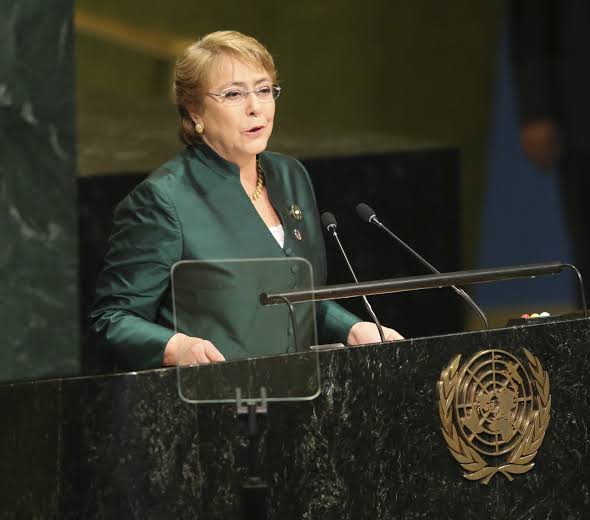The UN Human Rights High Commissioner, Ms Michelle Bachelet, has called for caution as more countries move to lift COVID-19 lockdowns imposed to contain the spread of the coronavirus.
SEE ALSO: Lebanese Who Put Nigerian Woman Up For Sale Arrested
Bachelet, a former medical doctor, Minister of Health, and President of Chile, gave the advice while speaking to newsmen from Geneva on Thursday.
She warned of potential risks, including the “danger of a second wave” that could cost many more lives if countries lift restrictions without adequate plans.
In the same breadth, she acknowledged the socio-economic difficulties resulting from prolonged lockdowns imposed by governments to stop the spread of the virus.
According to her, balancing the economic imperatives with the health and human rights demands of the COVID-19 response will be one of the most “defining experiences for all leaders and all governments”.
She said: “Their place in history will be decided by how well or how badly they perform over the coming months.
“If their response is based on the interests of a particular elite, causing the disease to flare up again in other less privileged or marginalised communities, it will rebound on everyone.
“If an affected country comes out of lockdown too hastily, there is a danger that a second wave, costing many more lives, will be triggered sooner and more destructively than would otherwise be the case.
“If the re-opening of societies is mishandled, all the huge sacrifices made during the initial lockdown will have been for nothing.
“However, the damage to individuals and to economies, will not just be retained – it will be significantly amplified.”
As of Thursday morning, the disease had infected more than 4.2 million people and killed no fewer than 294,000 others, according to the World Health Organisation (WHO).
The UN says COVID-19 continues to disrupt the lives of billions across the planet.
These include “countless workers and students who are now confined to their homes in efforts to protect lives from the deadly disease”.
Bachelet urged countries to adhere to WHO guidelines in relaxing movement restrictions and lockdowns.
WHO guidelines emphasise that transmission needs to be controlled while healthcare systems must be able to detect, test, isolate and treat every case, and trace contacts.
The UN human rights chief also called for measures to protect employees as the disease continues to cost millions their jobs around the world.
She urged authorities to ensure employees are protected when they return to their jobs.
For instance, she said those whose work involves contact with the public will need to be provided with masks, sanitizers and other shielding materials.
In addition, public transportation will need to be made as safe as possible, she emphasised
“When lifting lockdowns, those without stable incomes, those not able to work remotely, and all those in essential jobs – which is not just health workers – will face the highest risks.
“It is finally starting to be noticed that disproportionate numbers of essential workers are migrants, and that most of them, despite being ‘essential’ are often very poorly paid.
“Moving forward will also mean consulting with citizens in decisions that affect their lives, including how to lift emergency measures,” Bachelet said.



Leave a Reply